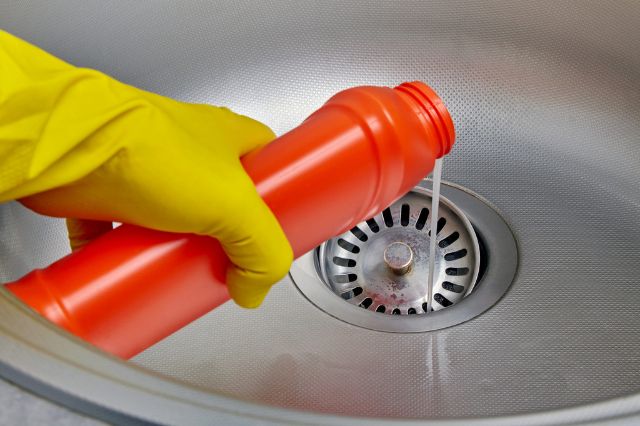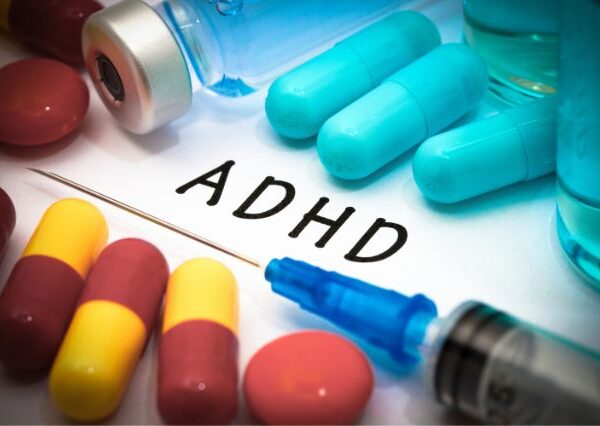Blocked drains are a common household nuisance many people solve with drain cleaning products. These products dissolve clogs to allow water to flow freely through your pipes.
While proper use can make them effective, they can potentially damage your pipes if you use them excessively. Here is more information about whether too much drain cleaner can damage your pipes:
Understanding Drain Cleaners
Drain cleaners typically come in two main forms, chemical and enzymatic. Chemical drain cleaning products contain harsh chemicals like sodium hydroxide (lye) or sulfuric acid, which work by generating heat and a chemical reaction to dissolve clogs. They are usually available in both liquid and gel forms and can effectively clear minor blockages.
Enzymatic drain cleaners are made from natural enzymes and bacteria that break down organic matter. They are safer for pipes and the environment due to the lack of corrosive chemicals.
The Dangers of Excessive Use
While drain cleaners can be a quick fix for minor clogs, using them excessively or incorrectly can lead to several problems:
Pipe Corrosion
Chemical drain cleaners, especially those with harsh ingredients like sulfuric acid, can corrode and weaken your pipes over time. They may contain sulfuric acid or sodium hydroxide (lye) which have several negative effects.
When poured down the drain, these chemicals react with the clogs, generating heat and releasing harmful gases. If the clog is particularly stubborn, the reaction can intensify, potentially causing harm to the pipes themselves.
The corrosive nature of these chemicals doesn’t discriminate between clogs and pipe materials. Prolonged exposure to these substances can lead to corrosion, weakening the pipes over time. Metal pipes, especially older ones made of iron or steel, are particularly susceptible to corrosion from chemical drain cleaners. Plastic pipes are also susceptible to damage.
Ineffectiveness
Excessive use of drain cleaners may indicate a deeper plumbing issue that needs professional attention. Relying on drain cleaners may only provide temporary relief and allow the underlying problem to worsen. Ineffectiveness often results in recurring clogs, creating a cycle of frustration and constant reliance on drain cleaners.
Another issue that comes as a result of ineffective drain cleaners is that the need for repeated purchases of drain cleaners can add up, becoming more costly than addressing the underlying plumbing issue.
Ineffectiveness may also mask underlying pipe damage or structural issues, allowing the drains to worsen and the damage will go unnoticed. Excessive use of drain cleaners may also contribute to environmental dangers as the chemicals may not be completely removed during sewage treatment.
Alternatives and Solutions
To avoid the danger of ineffectiveness, regularly clean your drains to prevent clogs. Use drain strainers to catch debris before it enters the pipes. If you experience frequent or severe clogs, consult a professional plumber who can effectively identify and address drain cleaning issues without excessive chemical use. Experienced plumbers will apply optimal drain cleaning solutions to protect your pipes.
To mitigate the environmental impact of drain cleaners, consider using alternative methods when dealing with clogs. You can use enzymatic drain cleaners, which are a more environmentally friendly option. They contain natural enzymes and bacteria that break down organic matter without harsh chemicals.
Safety Tips During Drain Cleaning
To minimize health risks associated with drain cleaners, consider the following safety measures:
- Protective Gear: Always wear appropriate protective gear when handling chemical drain cleaners. This includes gloves, safety goggles, and protective clothing.
- Ventilation: There should be proper ventilation when using these products. Open windows and use fans to disperse fumes.
- Read Instructions: Carefully read and follow the manufacturer’s instructions on the product label. Never mix different drain cleaning products, as this can produce dangerous reactions.
- Storage: Store drain cleaners out of reach of children and pets in a secure and well-ventilated area. Seal containers tightly to prevent leaks.
- Seek Medical Help: If you experience any adverse health effects from contact with drain cleaning chemicals, seek immediate medical attention.
Seek Drain Cleaning Help from Professionals
While drain cleaning chemicals can be valuable for addressing clogged pipes, use them cautiously and sparingly. Excessive or improper use of chemical drain cleaners can lead to pipe damage, environmental harm, health risks, and plumbing issues.
Consider alternative methods and consult a professional plumber for your drain cleaning to prevent potential long-term damage to your pipes.






